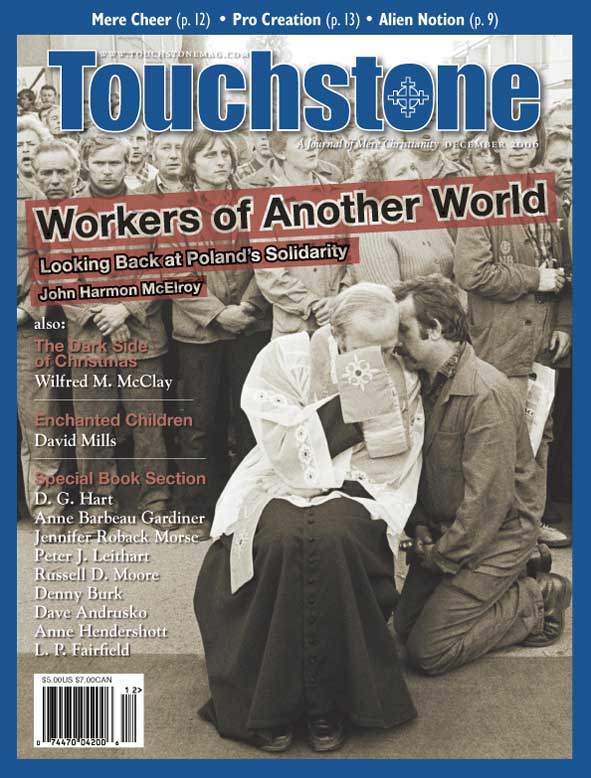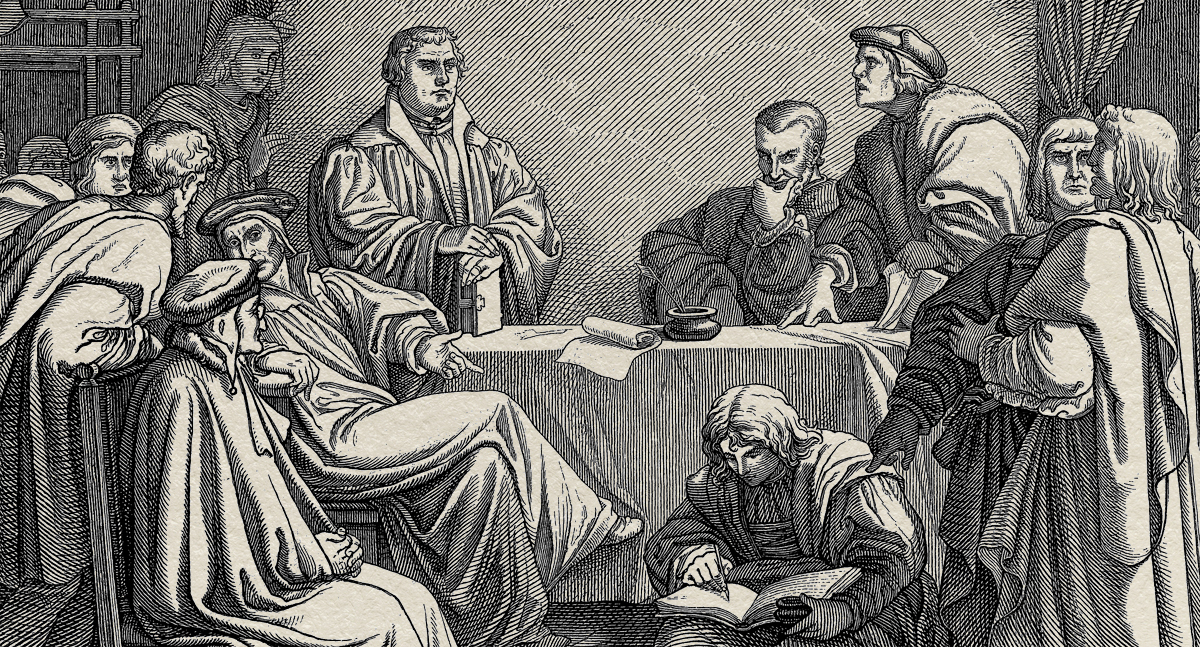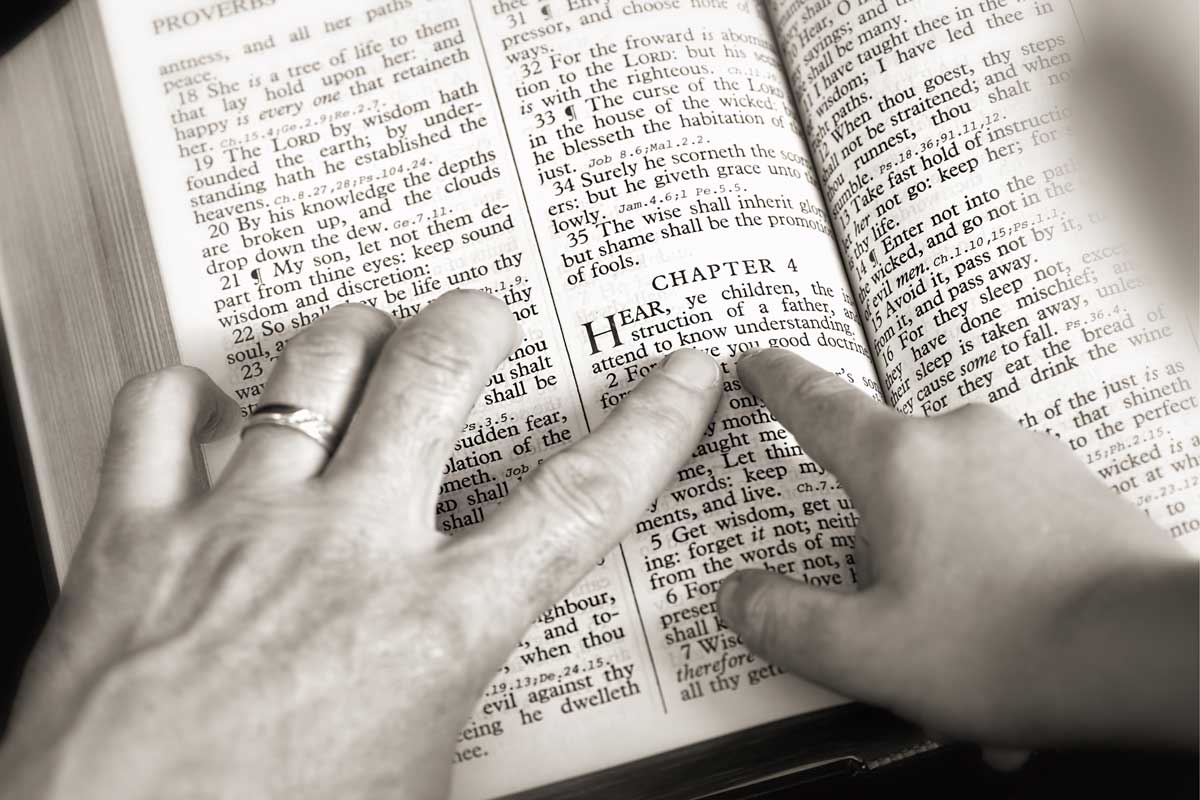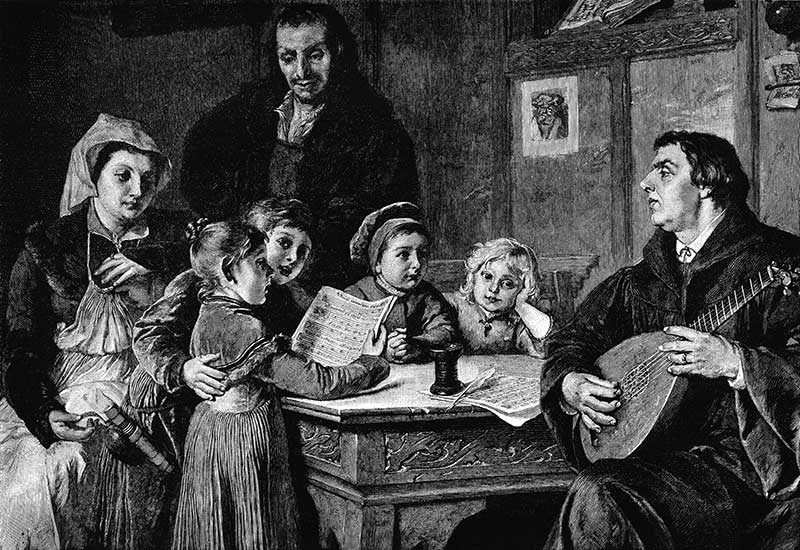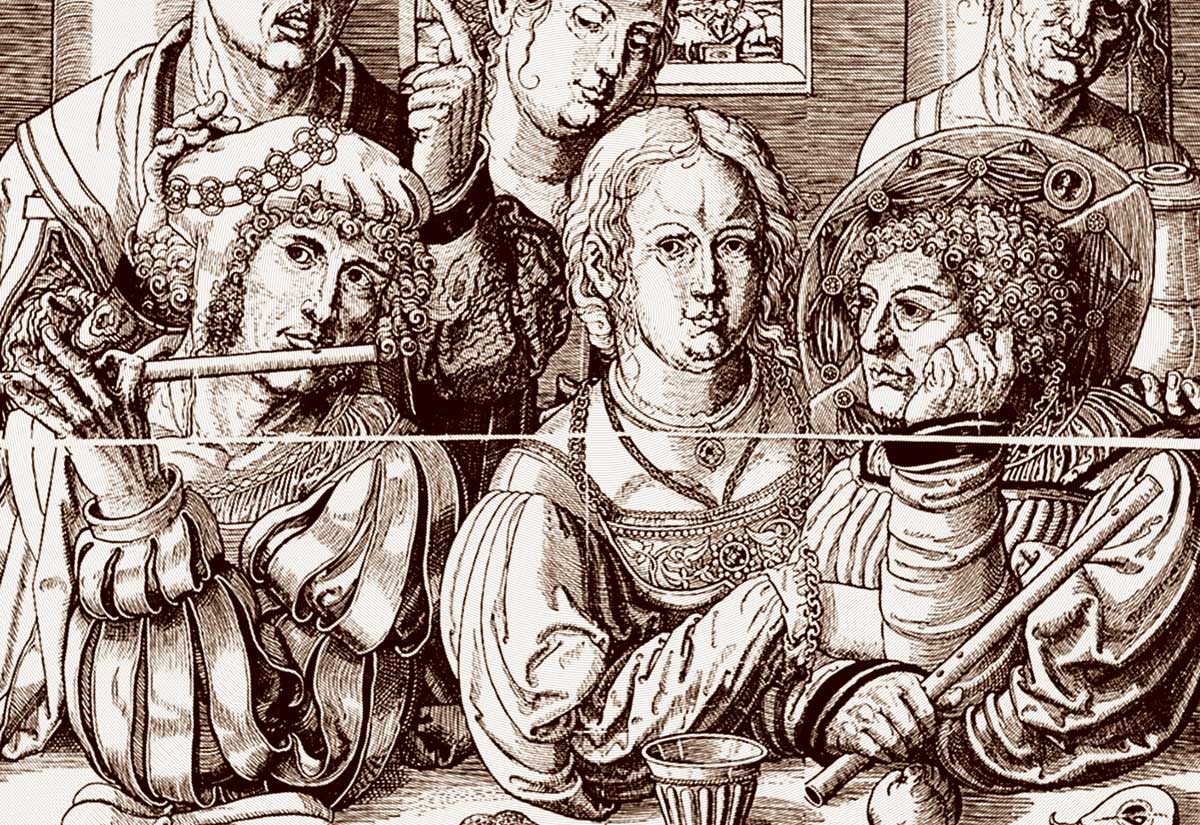View
Faculty in Service
Harold K. Bush, J., on Helping Students Love God by Washing Their Feet
Recently somebody asked me to describe the idea of mentoring and I responded with the first image that popped into my mind: washing dirty feet, an image that drew raised eyebrows from the questioner. Academics live and move and have their being in a culture that generally does not include Bible literacy, and so I needed to explain myself.
I said that mentoring begins with the development of what must become a personal and sacrificial relationship with a protégé. Jesus actually got down on his knees and washed those dirty feet. If we are honest with ourselves, those of us who teach must begin by admitting that (1) if we are to follow this Jesus, we have to go and do likewise, and (2) few of us are actually doing it for our own students.
A Good Day's Work
How do we do this? Here I will speak of my own experience as a teacher, but others in similar positions can easily find their own applications.
First, a mentor must be willing to commit a lot of time and energy to cultivating friendships with a handful of students. Do we put in a good day's work at the office, where we are accessible to our students, as well as to our colleagues (especially those bedraggled assistant professors)? Do we keep the door open? Do we open our homes to our students? If our homes are not comfortable or accessible, do we create spaces outside of normal hours to meet with students, to get to know them as people?
The best mentors I have ever had did all these things, seemingly with ease and delight. One in particular seemed always available, with door open and cold beverages in a dorm-style refrigerator, even though I sometimes appeared when he was right in the middle of some other task. He never minded, or at least he never seemed to mind.
Second, a mentor must confront his own strengths and weaknesses. Mentoring is much more about what kind of person the mentor really is than we want to admit. As the educational theorist Parker Palmer put it in The Courage to Teach, seldom, if ever, do most teachers ask, "Who is the self that teaches? How does the quality of my selfhood form—or deform—the way I relate to my students, my subject, my colleagues, my world?"
Such a view emphasizes that teaching is incarnational at its heart. Palmer quotes from St. Augustine's On Christian Doctrine: "What I would like to know is whether you possess and can accurately impart to others anything supremely important and wholesome?" To be a good mentor requires a healthy and sober understanding of ourselves, of what supremely important and wholesome things (if any) we possess.
A powerful benefit of this sobriety is that the mentor can learn as much as the disciple. The probing questions and moral integrity of certain of my students have forced me to become a better man than I was previously. Their enthusiasm and hunger, and their trust and vulnerability, inspired me to become a better person leading a better life.
Of course, our culture does not encourage us to talk like this. I have been virtually laughed out of certain meetings for saying that teachers need to be "good" persons ("Good!? According to whom!?"), or for asking questions about our perceptions of the integrity of a job candidate. (I distinctly recall in one departmental meeting some very loud, almost dumbfounded guffaws in response to my questions about a certain candidate's character, questions I have never felt like repeating ever since).
But if we cannot even ask questions about integrity and character (and I teach at a Jesuit university), we miss the point of what good teaching is all about.
Students Paid Forward
Third, mentors yearn to leave a mark on the younger generation, to pay something forward. Erik Erikson called this longing to pass something on to the generations coming after us "generativity," and it is a deeply human desire.
Students have been quick to tell me that their visits to my home were some of the most memorable and meaningful experiences of their entire undergraduate careers. That is enough reason for me to continue having them, though it involves preparing the house, spending money on food and drink, and cleaning up afterwards. By becoming more personal and real to them, my wife and I put ourselves into a much better position to leave a mark.
If generativity is a fundamental urge, mentoring should be at the center of teaching. But it is rarely so in today's McDonaldized university system. Certainly it should be at the heart of the educational mission of religious institutions, which claim to educate the "whole person."
How can we stimulate our students to love God, or to find salvation? Or to be better people? Some of the best conversations I have ever had with students came at the end of those evenings in my home, sitting around the coffee table, when everyone seems able to become much more honest with each other than they are in a classroom. If leaving a mark is important, I know that those evenings leave one.
Fourth, mentors always look out for a certain attitude and willingness. Unless the students make the effort, they cannot be mentored. Whatever success I might have had as a mentor is related directly to the extraordinary characteristics of the students who were willing and able to commit their energies to fostering a friendship with me. In some cases, these students drew me in, not vice versa. Mentoring need not be a 50–50 situation, but it can never be an 80–20 situation either.
Fifth, mentors earnestly desire that their protégés will themselves become good mentors. This desire is New Testament generativity at its most provocative. It is like the Ponzi scheme of heaven; the pyramid scheme of the kingdom of God, so to speak. As Paul writes in 2 Timothy 2:2, "The things which you have heard from me in the presence of many witnesses, entrust these to faithful men who will be able to teach others also."
The poet Wendell Berry writes, "The sower/ Going forth to sow sets foot/ Into time to come." We are sowing seeds that will nurture the future generations of the world by spending time and effort on just a handful of protégés, or even just a single person, who can then pay it forward. The key is to locate "faithful" followers who are likely to "teach others also." Like the yeast in one of the parables of Jesus, inevitably all of the flour will be energized and transformed (Matt. 13:33).
A Life Observed
Most of what I know about worthwhile mentoring derives from what I learned just by observing my own mentors. I hope they will read this and be encouraged, because their efforts have issued in this meditation.
Essentially, a mentor lives a concrete, observable life. When we talk of "synthesizing faith and the academy," or about the "integration of Christianity with scholarship," I think we must really begin with the incarnation of our faith that we bring to the office every morning. True integration begins in our own lives. We are living, breathing, sweating, laughing, and crying embodiments of that "integration"—no matter what our books and articles and syllabi and conference papers say. A mentor must hope, and pray, that his life, at least some of it, is worth imitating.
One of the most memorable expressions of mentoring in all of the Bible is the Savior washing dirty feet. Not offering a saying, not telling a parable, not leading a seminar, not giving a lecture. But a real, live man, doing something concrete to bless and encourage. It is an image that is most humbling, and it comprises a model of mentoring that is clearly not of this world.
Harold K. Bush teaches English at Saint Louis University. His newest book, Mark Twain and the Spiritual Crisis of His Age, will appear in the fall of 2006.
subscription options
Order
Print/Online Subscription

Get six issues (one year) of Touchstone PLUS full online access including pdf downloads for only $39.95. That's only $3.34 per month!
Order
Online Only
Subscription

Get a one-year full-access subscription to the Touchstone online archives for only $19.95. That's only $1.66 per month!
bulk subscriptions
Order Touchstone subscriptions in bulk and save $10 per sub! Each subscription includes 6 issues of Touchstone plus full online access to touchstonemag.com—including archives, videos, and pdf downloads of recent issues for only $29.95 each! Great for churches or study groups.
Transactions will be processed on a secure server.
more on education from the online archives
more from the online archives
calling all readers
Please Donate
"There are magazines worth reading but few worth saving . . . Touchstone is just such a magazine."
—Alice von Hildebrand
"Here we do not concede one square millimeter of territory to falsehood, folly, contemporary sentimentality, or fashion. We speak the truth, and let God be our judge. . . . Touchstone is the one committedly Christian conservative journal."
—Anthony Esolen, Touchstone senior editor






